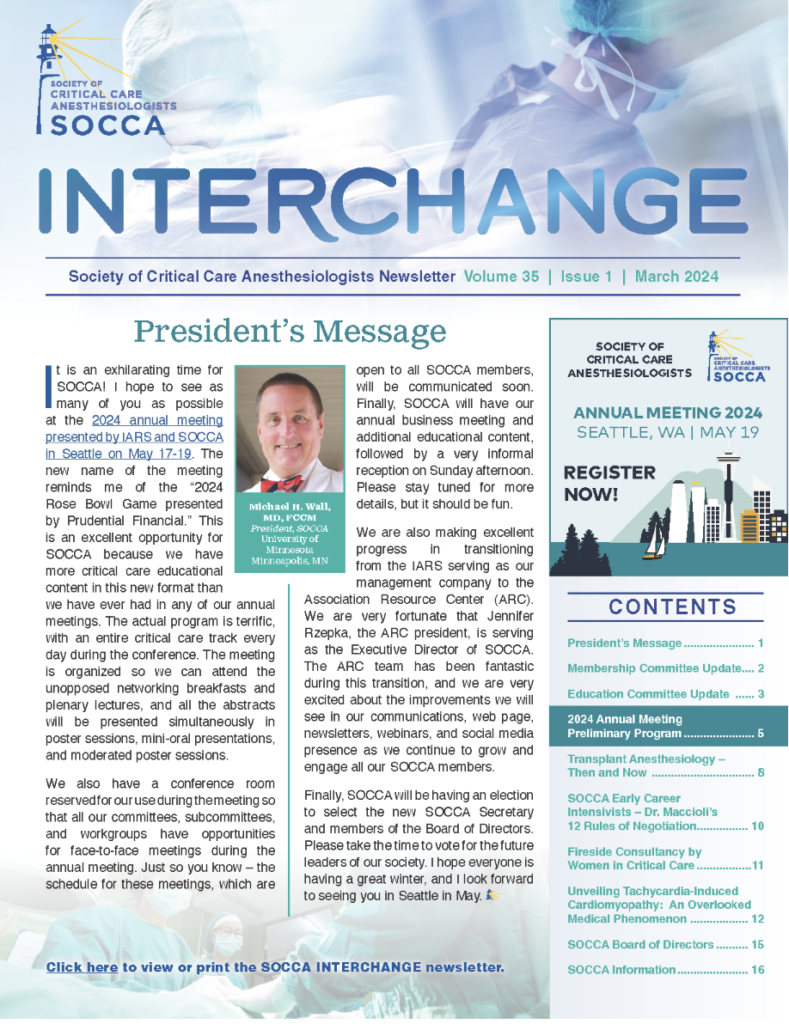by Daniel R. Brown, MD, PhD, FCCM
This is being written as COVID-19 unfolds in the United States, and I hope you are safe and secure. My submission is actually overdue owing to local involvement in disaster preparedness and response planning, and I know many of you are in similar positions within your institutions. This should serve to remind us, as well as our professional colleagues and administrative partners, of the broad skill sets we bring to the table. These skill sets not only include clinical care but the ability to build teams, make decisions, and effectively communicate.
Continue Reading…



































